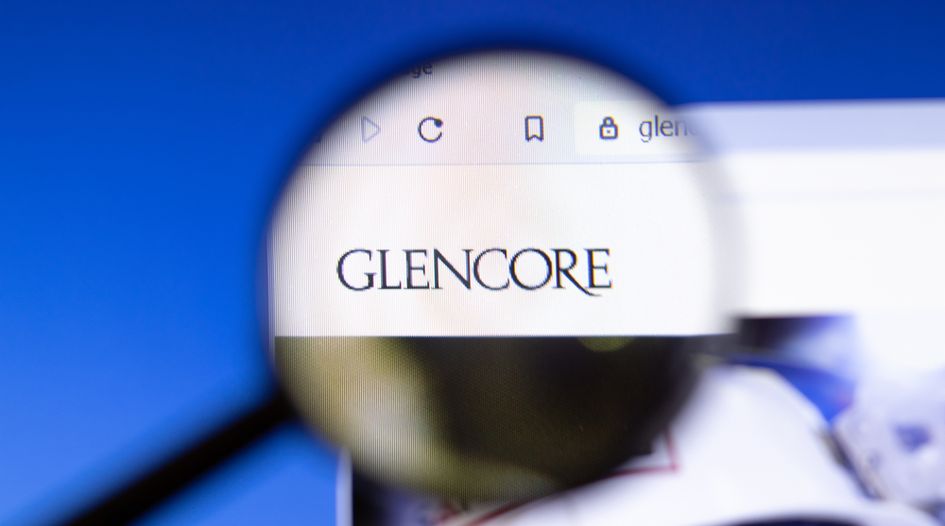The unit responsible for monitoring UK companies’ adherence to international guidelines for responsible corporate practices has found that Glencore failed to conduct appropriate due diligence following a 2018 oil spill in Chad.
The UK National Contact Point (NCP), which is staffed by officials in the Department for Business and Trade, said on 21 November that Glencore’s UK business failed to use its “leverage” to influence the subsidiary that operated an oilfield in Chad, where leaks occurred in 2018, to “mitigate adverse impacts” after local residents complained of suffering burns and skin lesions.
The Organisation for Economic Co-operation and Development (OECD) guidelines for multinational enterprises on responsible business conduct describe how large companies should act ethically in areas such as employment, human rights and the environment. The guidelines include a provision for businesses to carry out risk-based due diligence so they can “assess and address real and potential negative impacts” caused by their operations, supply chains or business relationships.
The 51 countries that have agreed to adhere to the guidelines must establish a “national contact point” to consider complaints against companies accused of breaching the voluntary rules. While the UK contact point sits within the Department for Business and Trade, the NCP is independent of the department and ministers have no role in its decisions.
The NCP received the underlying complaint in 2020 from three public interest organisations – the Association des Jeunes Tchadiens de la Zone Pétrolière, Rights and Accountability in Development and Public Interest Law Centre – against Glencore UK, the local arm of Swiss commodities giant Glencore Group, which is listed on the London Stock Exchange.
The rights groups claimed that the company failed to conduct appropriate environmental and human rights due diligence on an alleged wastewater spill and oil leak in 2018 at the Badila oilfield in Chad. The organisations claimed Glencore UK initially “denied any leak had occurred” and failed to engage with local communities following the incidents. Local residents reported that the surface of a nearby river was “oily” and had a peculiar odour following the wastewater spill, while the oil leak allegedly caused injuries such as burns, skin lesions, blurred vision and stomach aches to people living nearby.
The oilfield was operated at the time by a Glencore UK subsidiary, PetroChad, which was sold in 2022 to Anglo-French oil and gas company Perenco. The NCP decided to continue its examination of Glencore UK after the sale, however, because the spills occurred when Glencore UK owned PetroChad, because the examination started when that relationship still existed, and because no other national contact point had received a related complaint.
The NCP said it commissioned an expert to assist with the “technical elements” of the complaint, including the potential environmental risks of the 2018 wastewater spill and the extent to which PetroChad could have prevented it.
The unit concluded that Glencore UK “had leverage through its business relationship” with PetroChad, and should have used this to carry out more “effective risk-based due diligence” and influence the Chad subsidiary “to prevent or mitigate any adverse impacts as a result of the wastewater spill”.
But the NCP dismissed other elements of the complaint by declining to shift responsibility from PetroChad to Glencore UK for the adverse consequences of the 2018 incidents and the subsequent alleged failure to comply with human rights and environmental provisions.
“The Respondent has not directly caused or contributed to any adverse impacts,” the unit concluded.
The NCP recommended that Glencore UK improve its policies on carrying out effective due diligence on its business relationships, while recognising that the company’s human rights and environment policies, as well as its code of conduct, are already in line with the OECD guidelines and the United Nations guiding principles on business and human rights.
The NCP said it will issue a follow-up report in July 2025.
A spokesperson for Glencore said in an emailed statement: “We are committed to operating in a safe and responsible manner in accordance with all applicable laws and regulations.”
“We seek to actively manage and mitigate impacts our industrial assets may have on local communities and the environment,” they added.
Anneke Van Woudenberg, the executive director at Rights and Accountability in Development, said that while the complainants welcome the NCP’s findings that Glencore UK failed to prevent the harms caused by the 2018 incidents, “it is troubling that the company is not being held accountable for remedying the damage caused”.
Van Woudenberg added that the NCP “has missed a crucial opportunity” to reinforce to UK companies “the importance of upholding responsible business practices and the necessity to provide remedies when their actions cause harm”.
In an unrelated case, Glencore Group agreed to pay over $1 billion to agencies in the US, the UK and Brazil in 2022 to resolve investigations into bribery and market manipulation. In the UK portion of the resolution, the Serious Fraud Office charged Glencore Energy UK with seven counts of breaching the Bribery Act for allegedly paying, or failing to prevent others from paying, over $25 million in bribes to win oil contracts from state-owned companies in Cameroon, Côte d’Ivoire, Nigeria, Equatorial Guinea and South Sudan between 2011 and 2015.
Glencore settled a related probe in Switzerland in August, where the company was fined $152 million and convicted for failing to prevent a business partner from bribing public officials in the Democratic Republic of Congo (DRC) in 2011. The Netherlands Public Prosecution Service closed a parallel investigation after the company accepted liability in Switzerland.

